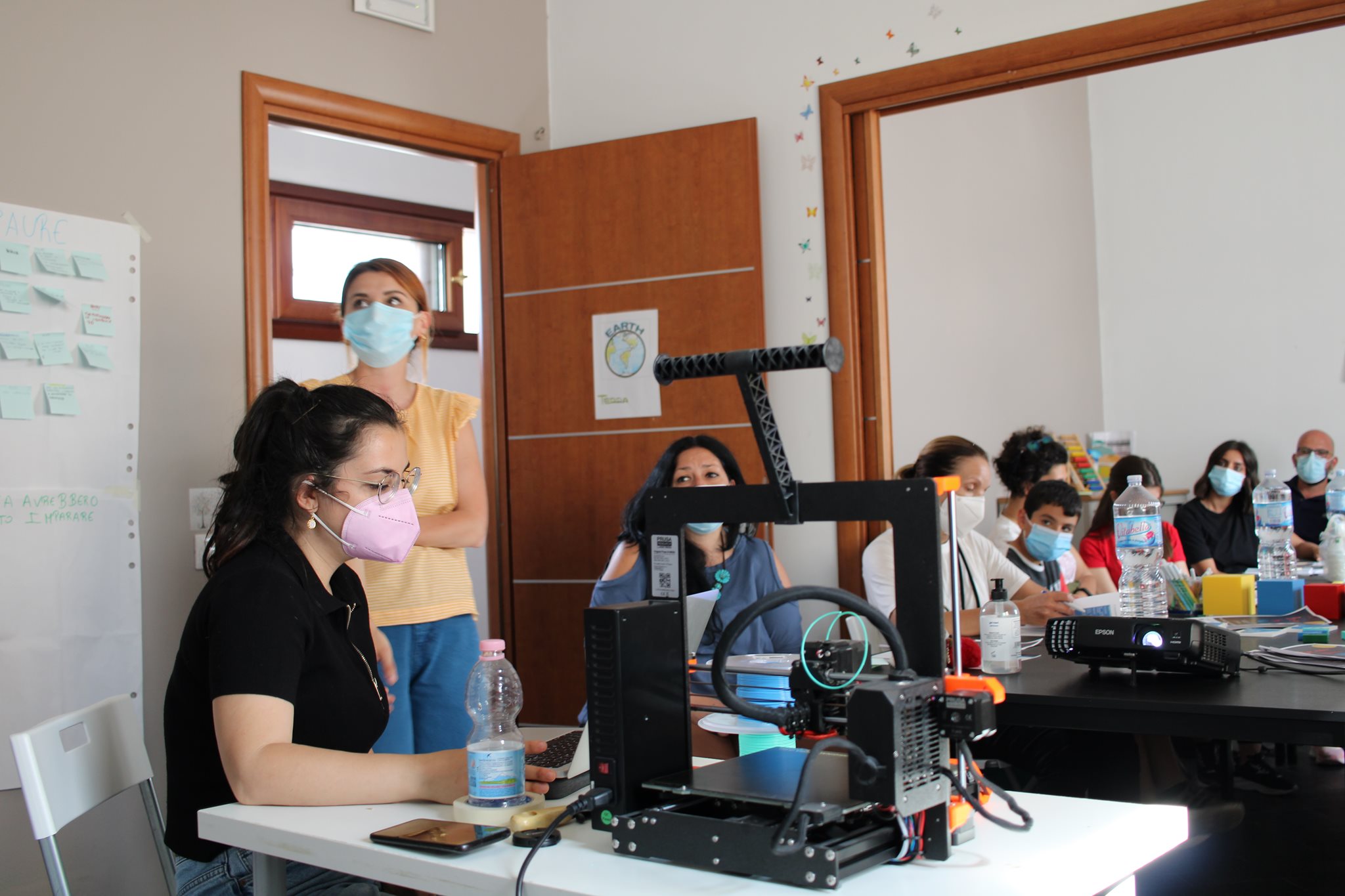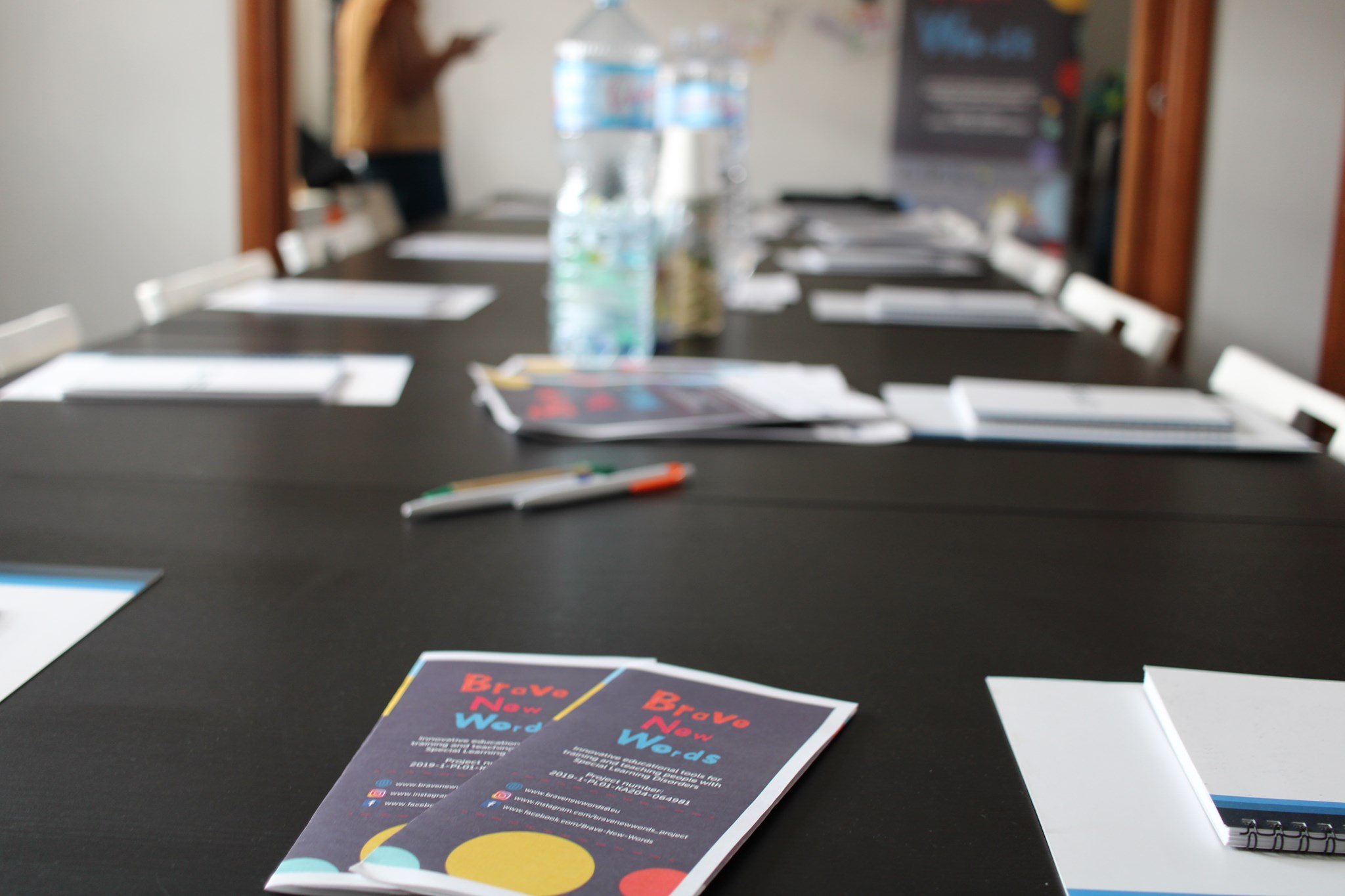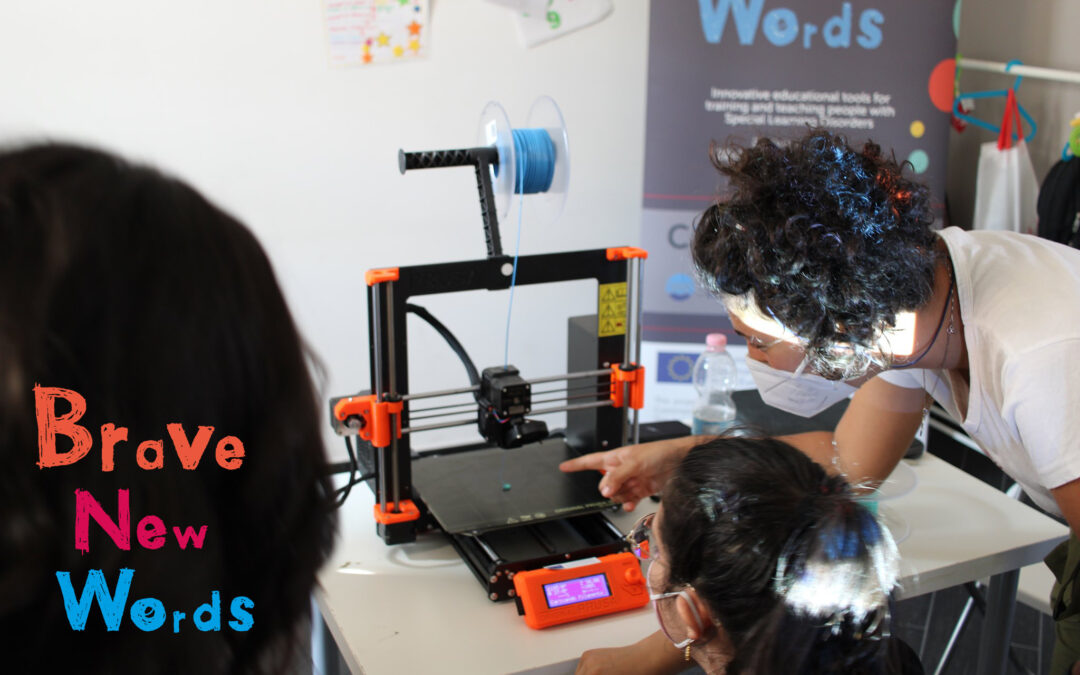On the 9th of June 20201, the Italian pilot of the project Brave New words has started.
BRAVE NEW WORDS – “Innovative educational tools for training and teaching people with Special Learning Disorders” project is funded by the European Commission under the Erasmus+ programme, KA2 – Strategic Partnerships for adult education and it involve 4 partners from different European countries: Italy, Spain, Bulgarian and Poland.
The project aimed to create innovative learning pathways that increase the quality of the work of educators and staff members dealing with students with Special Learning Disorders (SpLD), using 3D Printing and Augmented Reality.
SpLD is a type of Neurodevelopmental Disorder that does not allow the ability to learn or use specific academic skills in one or more areas of reading, writing, math, listening comprehension, and expressive language, which are the bases for other academic learning.
The use of 3D printing and AR technology will transform how people with SpLD will learn by offering a multisensory experience to them. For the development of Multisensory methods and methodology, the new technologies (3D printing and AR) can be useful tools for developing new inclusive tools.
The project partners, after having concluded the materials to be tested, are focusing to test both the guides and toolkits relating to 3D printing and augmented reality technologies, and a series of exercises always developed with the two technologies that will help in the learning process of people with SLD.
In particular, CEIPES has already started the pilot phase with the associated partner of the project: Si.Da associazione psicoeducativa delle Dr esse Daniela Leto e Simona Valenti.
on the 9th of June, the first training day was held in which 10 staff members of the association among educators, psychologists, pedagogists and trainers took part. Some target customers of the association also participated in order to have an audience on which to test the first exercises.
In particular, the day was organized in the following way:
– Activities with non-formal training games
– A brief overview of the project, objectives, activities and what has been produced so far
– Introduction to 3D printing (what is additive manufacturing, its strengths, what are the parts of a 3D printer, 3D modeling and slicing software, materials used and areas of use)
– Practical demonstration of a print
– Explanation of the exercises produced
– First test among trainers of the exercises carried out.
This first pilot day was created and focused on 3D printing in such a way as to give the participants the opportunity to deepen the two technologies with the right amount of time.
Soon there will be a second test again with the staff. This time will be focused on the exercises, to deepen the themes, improve them and then test them again with the people with SLD.
CEIPES and Si.Da will have 2 months to carry out the appropriate tests on 3D exercises in September, instead, space will be given to augmented reality.
For further information follow us on our website and Facebook and Instagram accounts.




